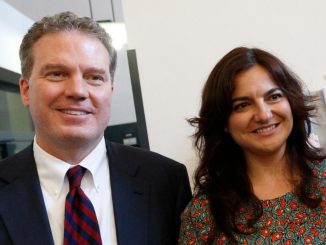
Washington D.C., Jan 16, 2019 / 05:12 pm (CNA).- The man who made a 2004 accusation of misconduct against Archbishop Theodore McCarrick said Wednesday he is in disbelief after Cardinal Donald Wuerl told him he forgot about the allegation sometime after becoming Washington’s archbishop in 2006.
In a Jan. 15 letter, Wuerl wrote to Washington, DC priests that “when I was asked if I had any previous knowledge of allegations against Archbishop McCarrick, I said I did not. Only afterwards was I reminded of the 14-year-old accusation of inappropriate conduct which, by that time, I had forgotten.”
In a previous letter to priests, sent Jan. 12, Wuerl did not mention forgetting the allegation, instead he said he was bound by confidentiality not to mention it, and that when he denied hearing rumors about McCarrick’s misconduct, he meant only that he had not heard rumors that McCarrick had sexually abused minors.
The 2004 complaint was made by laicized priest Robert Ciolek.
In 2004, Ciolek went to Wuerl, who was then Bishop of Pittsburgh, to relay an accusation of sexual abuse at the hands of a Pittsburgh priest. At the same time, he reported to Wuerl that McCarrick had, as Bishop of Metuchen, shared a bed with seminarians at a New Jersey beach house, pressuring Ciolek to do the same. Wuerl presented those accusations to the apostolic nuncio in Washington.
Ciolek told CNA he spoke with Wuerl by telephone on Jan. 15, and that the cardinal told him personally what he later said in his letter: that he had had “a lapse of memory” regarding the 2004 allegation.
When Wuerl told him that, Ciolek said, he asked the cardinal if he had already forgotten the accusations by the time he arrived in Washington as McCarrick’s successor in 2006, only two years after he reported the allegation. He told CNA that he also asked Wuerl if he had taken any steps to see whether the same behavior was being repeated in Washington.
He said that Wuerl told him: “I did think about that when I arrived in Washington, but because I had never heard any other allegation or rumor, or heard back from the nuncio, I didn’t feel it was something I needed to concern myself with in Washington at that time.”
Ciolek said he found it difficult to understand how Wuerl could have forgotten the substance of his accusations in the ensuing years, especially after recalling them as he arrived in Washington to replace McCarrick.
“It’s unfathomable to me that he has forgotten, I don’t believe it for one second.”
A spokesman for the Archdiocese of Washington declined to comment on Ciolek’s account of the conversation between him and Cardinal Wuerl, telling CNA that “the cardinal considers this a private conversation and will be respecting that.”
Ciolek told CNA that during their Jan. 15 telephone call, Wuerl also offered personal apologies for the abuse he had suffered, along with an apology for a “lapse of memory” regarding his 2004 allegation.
“I did not believe him when he said he did not remember,” Ciolek said, adding that the apology “wasn’t making sense to me in the light of his statement last week.”
In his Jan. 12 letter to Washington, DC priests, Wuerl wrote that when he offered multiple denials about hearing rumors regarding McCarrick, he meant them more narrowly than they were perceived, saying he spoke “in the context of the charges of sexual abuse of minors, which at the time was the focus of discussion and media attention.”
“While one may interpret my statement in a different context, the discussion around and adjudication of Archbishop McCarrick’s behavior concern his abuse of minors,” Wuerl added last week.
Ciolek also told CNA he felt that Wuerl’s recent statements have sought to “minimize” the allegations by referring to them as “inappropriate conduct.
He also told CNA that he disliked having to discuss his abuse and experiences publicly, but considered it a necessary contribution towards reform.
“I saw this conversation as an opportunity for Wuerl to say ‘enough is enough,’ and finally own his own actions. Sadly that hasn’t happened yet.”
He said he told the cardinal Tuesday “while it was nice to hear all you’ve expressed, your last comments about your own forgetfulness about these things is actually causing me more pain than I’ve already endured.”
“I don’t want any seminarian to endure what I did at the hands of a bishop again. I think the only way anyone can have hope that will happen is not just needed process changes, but ripping the band-aid off and exposing the wounds. People will be more willing to trust and believe [in reforms] if real honestly is part of the process,” Ciolek said.
“I’m sorry, if Cardinal Wuerl says he can’t remember…, there is only one conclusion [I can draw] and that is he is not being honest. He knew, he knew.”
 […]
[…]








